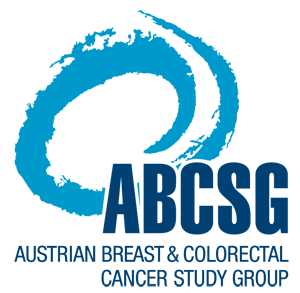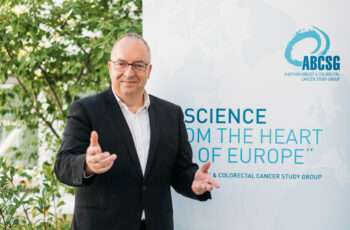The Positive Impact of Disclosing „Negative“ Research Results
25.02.2022For the Austrian Breast and Colorectal Cancer Study Group (ABCSG), the year 2021 showed how successful and thriving – and at times challenging – clinical research can be. From practice-changing study results to the positive impact and opportunities of disclosing negative trial outcome, Professor Michael Gnant, President of the ABCSG, provides insight into some ABCSG clinical research areas of the past year, and what we can learn from these findings.
INTERVIEW FROM JANUARY 2022
- The ABCSG-16 / S.A.L.S.A. study results published in the New England Journal of Medicine in July 2021 were surely among the most significant achievements for the ABCSG research team in the past year, since they set a practice-changing standard in the treatment of postmenopausal patients with hormone receptor-positive breast cancer. If you, as the study initiator, look at it in retrospect, which parameters make a study successful?
For ABCSG-16, “resilience” is probably the most characteristic feature. The first ideas were discussed in the year 1999 (!), recruitment eventually started in 2004 – and then it took more than two decades to get to the final results! This shows that academic research often needs stamina and unwavering confidence – I am not sure that our academic systems always provide optimal circumstances in this respect, particularly for young researchers. However, ABCSG-16 eventually provides evidence for another important de-escalation of standard (adjuvant endocrine) therapy: 7 years treatment duration is enough for the vast majority of our patients – avoiding unnecessary and side-effect rich overtreatment is important! - At SABCS 2021, you presented the data from the final analysis of the global PALLAS study. In the adjuvant setting, the addition of palbociclib to endocrine therapy did not provide any benefit in terms of improving invasive disease-free survival. Are you disappointed with the results, or is the study considered a success despite the negative outcome?
For sure, we had hoped for another adjuvant breakthrough for patients with luminal breast cancer when we started this huge enterprise. However, it is science, not religion (as one of my academic teachers once said) – we do learn at least as much from “negative” trial results as we do from outrightly “positive” trials. Apparently, not every aspect of progress we achieve in the advanced breast cancer setting can easily be transferred to the adjuvant setting, and the biological target might matter as well as dosing and scheduling issues. In any case, developing, leading, and successfully conducting a global trial with the help of many wonderful people in the BIG network, and in transparent partnership with industry, but under full academic control, has been and remains a great experience. And the journey has just begun – we expect the first exciting results from the huge transPALLAS programme already in 2022 – this trial is going to provide research opportunities for many years to come! - What do you expect from the results of the PALLAS Translational Research Programme (“transPALLAS”) and the first call for project proposals within the BIG Network?
Key to the successful conduct of transPALLAS will be that innovative research ideas are brought forward by bright minds within the network. The stage is set – with mandatory tissue banking, serial serum sample collection, and long-term follow-up, all the elements are in place for young investigators to interrogate this huge treasure trove of information. An interdisciplinary and collaborative spirit will guide us through this exciting next chapter of the trial. - Do we need to adopt a more flexible mindset in which sharing well-conducted research is valued, regardless of whether the initial research hypothesis was confirmed/verified? Or not?
Clearly, there is a negative publication bias in the system of high-ranking medical journals, which is regrettable. In “Star Wars”, Master Yoda says: “Failure, the greatest teacher is” – and this is absolutely true! Some of the greatest advances in medicine were not planned but detected by an ingenious moment, based on systematic and laborious collection of data. Even in the molecular age of clinical research, with all its wonderful opportunities provided by global databases, the increasing options of in silico research (experimental techniques performed by computers), artificial intelligence, and machine learning, this will remain the basic process: collaborative data collection, resilience and endurance in the process, and providing opportunities and facilitating inspiration, particularly for young researchers.
Mehr Beiträge zum Thema:
Interview
Teilen auf

